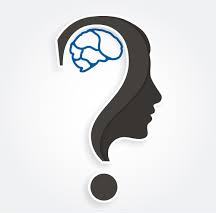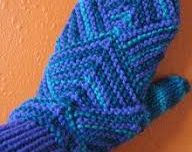 November is National Alzheimer’s Disease Awareness Month, so I am going to give a lot of attention throughout this month to what we know as well as what we don’t know about dementia generally and Alzheimer’s disease specifically. More Americans fear an Alzheimer’s disease diagnosis than fear dying, and that should be no surprise, given that a new Alzheimer’s diagnosis is given every 67 seconds in the United States. But we should all be cautious in accepting any Alzheimer’s diagnosis for a loved one at face value. Research has shown that 24 percent of diagnoses actually are misdiagnoses.
November is National Alzheimer’s Disease Awareness Month, so I am going to give a lot of attention throughout this month to what we know as well as what we don’t know about dementia generally and Alzheimer’s disease specifically. More Americans fear an Alzheimer’s disease diagnosis than fear dying, and that should be no surprise, given that a new Alzheimer’s diagnosis is given every 67 seconds in the United States. But we should all be cautious in accepting any Alzheimer’s diagnosis for a loved one at face value. Research has shown that 24 percent of diagnoses actually are misdiagnoses.
Given that there are about 100 different manifestations of dementia, perhaps we should be surprised that the rate of misdiagnosis is so low? And it is important also to bear in mind that the health care provider making the diagnosis may or may not be well-qualified to make the call either for lack of experience or for lack of proper tools with which to diagnose. Our team became involved with the mother of one of our people, because she was showing signs of cognitive decline. He recalls that on one of his visits her common introductions to friends of hers had become “You don’t have a name…this is my son.” He and his sister started making calls to her primary care physician’s office to get a sense of what was going on.
In his mother’s file the diagnosis was “organic dementia.” The doctor had further prescribed an FDA-approved medication called Namenda for his mother for that “organic dementia.” First, Namenda is indicated for Alzheimer’s disease (not “organic dementia”) and is to be used in combination with another drug for Alzheimer’s called Aricept. Now with his mother’s doctor on the line, our staff member questioned why the prescription for a condition for which his mother had not be diagnosed and that was to be used only with a medication she had not yet been prescribed? And at $350 out of pocket per month? The doctor mumbled something about whether the son wanted his mother to have an autopsy to diagnose the condition…or was it the money. Stunned at how behind the times the doctor was, the son simply said it was the cost and the doctor withdrew the prescription.
Let me get back to the autopsy. A decade and a half ago scientists could not definitively diagnose Alzheimer’s until after the individual had died and an autopsy of the brain could be performed. Now, we have neurologists who can confidently diagnose the condition with MRIs, PET scans and blood tests along with cognitive tests in real time and an historical look at a patient’s records. In these neuro-psych exams, the specialist is able to not only identify the condition, but more importantly what can be done.
As it turns out with our team member’s mom, she had vascular dementia, the end result of numerous “mini-strokes” over time that deprived more and more parts of her brain of blood flow. As his mother’s condition deteriorated she was required to move from independent living to assisted care and finally to a memory unit. I have noted before in other posts that there are no cures for Alzheimer’s; well, there was no cure for vascular dementia that had progressed as far as it had for our team member’s mom either. But she lived to be more than ninety years of age and had a quality life. In the end, her quality of life was greatly assisted by those around her who knew the source of her dementia and how best to care for her. And that is as happy an ending as one can hope.
For the rest of this month I am going to be talking a bit more about how dementia often gets confused with delirium or depression, as well as Alzheimer’s disease and also address your questions. Please just email me your questions or concerns at info@creativecaremanagement.com .
Charlotte Bishop is an Aging Life Care Advisor, Geriatric Care Manager and founder of Creative Care Management, certified professionals who are geriatric advocates, resources, counselors and friends to older adults and their families in metropolitan Chicago. She also is the co-author of How Do I Know You? A Caregiver’s Lifesaver for Dealing with Dementia.






